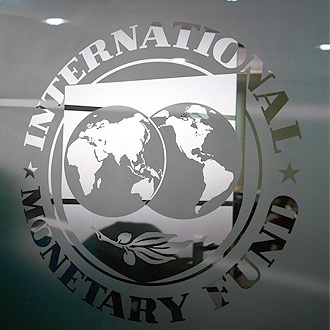
CAIRO — The Egyptian pound has lost a 10th of its value since the start of the year.
Report by BBC
International Monetary Fund (IMF) officials are holding talks in Cairo with the Egyptian government about authorising a US$4,8 billion loan for the country.
Egypt needs the money to help lift an economy hit by low foreign currency reserves and the weak Egyptian pound.
To get the funds Egypt must convince the IMF that it is serious about carrying out economic reforms.
Egypt’s economy has been affected by the country’s political turmoil. Analysts expect that the Egyptian government will have to agree to economic reforms including tax rises, and cuts to fuel and bread subsidies, in order to reduce its high budget deficit.
The idea is that the IMF would come in and give a green light to open the way for perhaps US$15 billion worth of funding to come into the economy over the next two to three years”
Cairo also needs to carry out reforms to improve overseas confidence in its economy, at a time when the Egyptian pound has lost a 10th of its value since the start of 2013.
- Chamisa under fire over US$120K donation
- Mavhunga puts DeMbare into Chibuku quarterfinals
- Pension funds bet on Cabora Bassa oilfields
- Councils defy govt fire tender directive
Keep Reading
Inflation is also running high in Egypt, and a lack of funds has meant that the government has had to cut back on fuel and food imports, sparking protests.
The situation has not been helped by a fall in the number of tourists, as holidaymakers have been put off by the continuing political uncertainty in the country.
Angus Blair, the chairman of the Signet Institute, a Middle East and North Africa think tank, said: “There is going to be a lot more pressure on Egypt to come out with a positive economic plan, to try to construct a plan which would build domestic confidence, investment and economic growth.”
The IMF had agreed a loan deal with Egypt in November last year, but this was subsequently cancelled by the IMF following political conflict between President Mohamed Mursi’s Muslim Brotherhood and its opponents.
The political situation may worsen ahead of parliamentary elections later in the year, some analysts suggest.
David Butter, an associate fellow at think tank Chatham House said that both the IMF and Egyptian government hoped that a successful loan agreement would encourage other foreign investment into Egypt.
“The idea is that the IMF would come in and give a green light to open the way for perhaps US$15 billion worth of funding to come into the economy over the next two to three years,” said Butter.
“They [the Egyptian government] need the IMF funds, and the other funds in there as well, to provide an interval to address the really deep-seated problems.”











